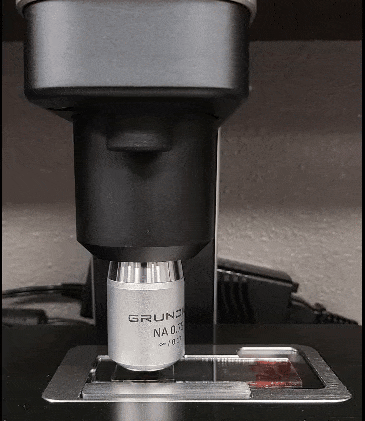At The Hometown Veterinarian, we provide comprehensive parasite control to protect your dog from harmful intestinal parasites. This includes testing, preventive medications, and deworming treatments. Common parasites like intestinal worms, roundworms, hookworms, tapeworms, Coccidia, and Giardia can lead to serious health issues and may even be transmitted to humans. Regular testing, proactive prevention, and timely treatment are essential for keeping your dog healthy and safe.
Signs of Intestinal Parasites
- Vomiting or Diarrhea
- Weight Loss
- Swollen Belly
- Lethargy
- Visible Worms in Stool
- Although visible worms may occasionally appear in stools, most parasites pass microscopic eggs that require specialized testing to detect
 The Importance of Fecal Testing
The Importance of Fecal Testing
Routine fecal testing is crucial for detecting intestinal parasites early, such as intestinal worms, Coccidia, and Giardia, ensuring timely and effective treatment. At The Hometown Veterinarian, we utilize advanced Imagyst technology, which employs AI-powered precision to detect parasites, even when present only in microscopic amounts. This ensures accurate diagnosis and treatment, safeguarding your dog’s health.
Common Intestinal Parasites in Dogs
- Roundworms
- Hookworms
- Tapeworms
- Coccidia
- Giardia
Our veterinarians recommend regular parasite control measures for both indoor and outdoor dogs to ensure complete protection.
How Dogs Get Intestinal Parasites
Dogs can commonly acquire intestinal parasites through various means:
- Fleas: One type of tapeworm can be spread to dogs through fleas.
- Ingesting Contaminated Soil or Prey: Dogs can acquire roundworms, hookworms, and other parasites by ingesting contaminated soil, water, or infected prey.
- Mother to Puppies: Parasites such as roundworms can be passed from a mother dog to her puppies either through nursing or in utero.
- Exposure to Infected Animals: Dogs can also contract parasites from other infected dogs during social interactions.
Prevention vs. Treatment of Intestinal Parasites
While deworming is effective, it is much better to protect your dog from becoming infected with parasites in the first place. Therefore, it is crucial to adopt a proactive strategy. We recommend NexGard Plus, which helps prevent many intestinal and external parasites. However, since no single product covers every parasite, regular fecal testing is essential. The Companion Animal Parasite Council (CAPC) advises fecal exams at least twice a year, especially for dogs exposed to outdoor environments or other animals.
Schedule an Appointment Today
To keep your dog healthy and parasite-free, schedule an appointment at The Hometown Veterinarian in Marshalltown, Iowa for comprehensive parasite control, including deworming, preventive care, and regular fecal testing. Our team is dedicated to ensuring your dog receives the best in prevention and treatment to protect against intestinal parasites.
Call us at (641) 758-3333 or click here to request an appointment.
